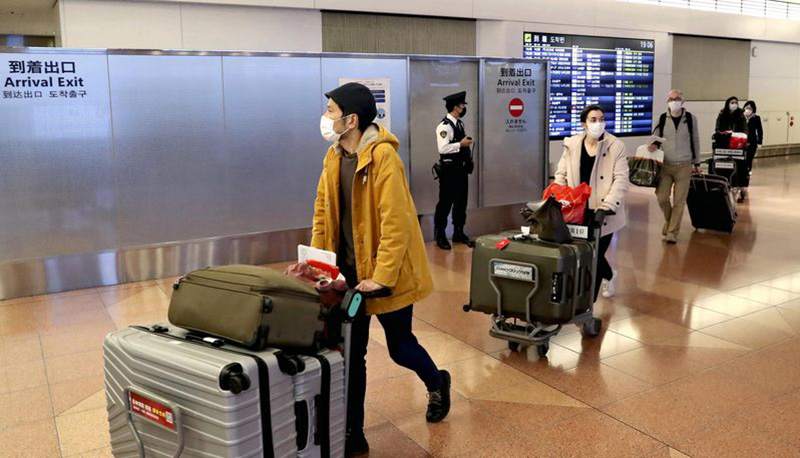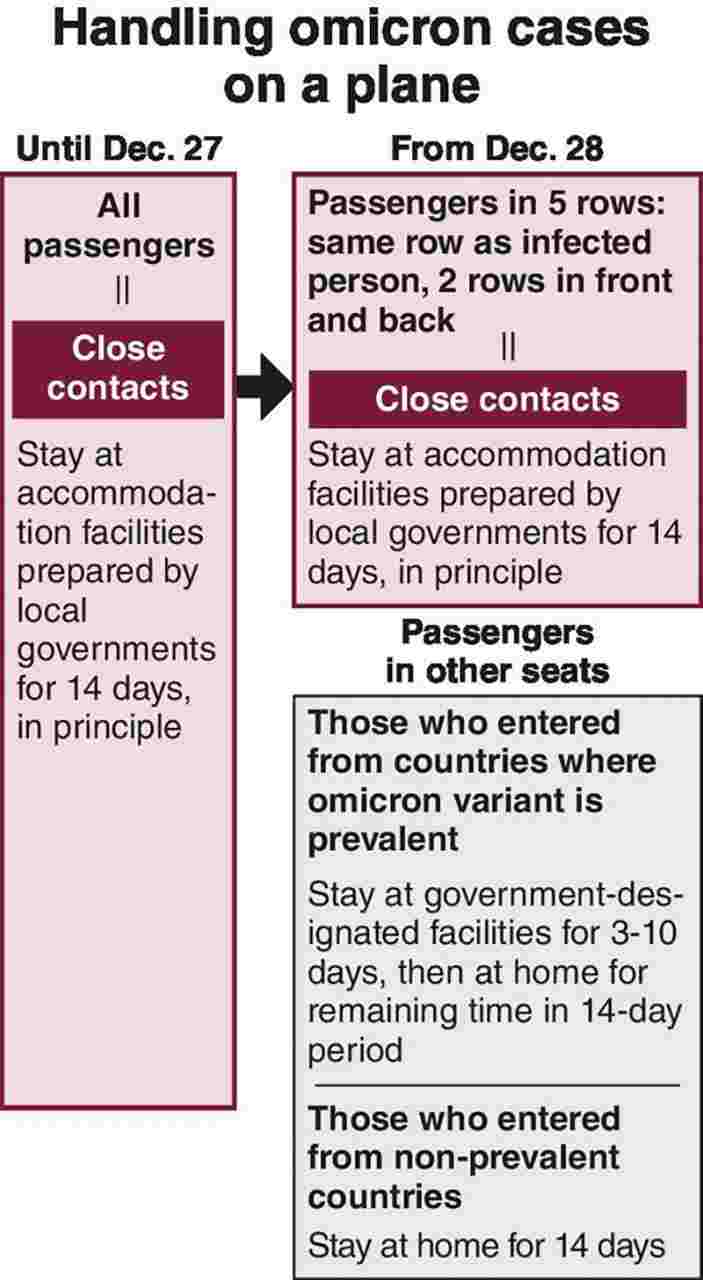
Few people are seen at the arrival lobby at Haneda Airport’s international terminal in Ota Ward, Tokyo, on Dec. 1.
16:32 JST, December 28, 2021
The Health, Labor and Welfare Ministry has narrowed its definition of people who were in close contact with infected persons on planes arriving from overseas, in response to the spread of the omicron variant of the novel coronavirus.
Previously, all passengers on board a plane with an infected person were designated as close contacts. This was changed from Tuesday to passengers in five rows: the row containing the seat of the infected person and the two rows in front and behind.
The ministry’s decision was aimed at reducing the burden on local governments, which are dealing with an increasing number of close contacts.
All passengers on board a plane carrying an infected person were deemed to be close contacts from the end of November, as a frontline measure to slow the spread of the omicron variant in Japan. However, more infections with the variant have been detected at airport quarantine facilities, and the number of close contacts reached about 7,000 as of midnight Monday.

Airport facilities are under increasing strain, and Chiba Gov. Toshihito Kumagai and others had asked the government to review the measures.
According to the health ministry, only 0.1% to 0.2% of close contacts on board planes have been found to be infected themselves.
“The percentage [of infections on board planes] is extremely low even for the omicron variant,” health minister Shigeyuki Goto said. This led the ministry to narrow the definition of close contacts to passengers in the five rows, as with other coronavirus variants.
Those who sat in other seats will be asked to stay at home for 14 days. If a passenger has been in a country or region where the omicron variant is prevalent, they will be asked to stay at a government-designated facility for 3 to 10 days and the remainder of the 14-day period at home.
The new standard is being applied to flights arriving from Tuesday on. Close contacts already staying at accommodation facilities are being asked to remain in the same place.
In addition, the health ministry will accelerate the identification of close contacts from Tuesday, as 80% of the coronavirus infections being confirmed at airport quarantine facilities are with the omicron variant.
If a person tests positive, they will be treated as a “suspected omicron patient” and passengers in the relevant five rows will be informed that they are close contacts. If communication is made swiftly enough, people could be contacted while they are still in the airport, which should help prevent the spread of infection.
According to the ministry’s announcement Monday, 59 new cases of the omicron variant had been confirmed at airport quarantine facilities, bringing the total number of confirmed omicron cases at such facilities to 247.
“The omicron variant is more infectious than other strains, so all passengers were supposed to be considered close contacts,” said Atsuo Hamada, a special-appointment professor of travel medicine at Tokyo Medical University. “The government needs to carefully explain such things as the distance between the seat of an infected person on a plane and the seat of a close contact who is later found to have the virus, so that the sudden change in policy will not cause anxiety among the public.”
Top Articles in Society
-

Man Infected with Measles Reportedly Dined at Restaurant in Tokyo Station
-

Man Infected with Measles May Have Come in Contact with Many People in Tokyo, Went to Store, Restaurant Around When Symptoms Emerged
-

Woman with Measles Visited Hospital in Tokyo Multiple Times Before Being Diagnosed with Disease
-

Australian Woman Dies After Mishap on Ski Lift in Nagano Prefecture
-

Foreign Snowboarder in Serious Condition After Hanging in Midair from Chairlift in Nagano Prefecture
JN ACCESS RANKING
-

Japan PM Takaichi’s Cabinet Resigns en Masse
-

Japan Institute to Use Domestic Commercial Optical Lattice Clock to Set Japan Standard Time
-

Israeli Ambassador to Japan Speaks about Japan’s Role in the Reconstruction of Gaza
-

Man Infected with Measles Reportedly Dined at Restaurant in Tokyo Station
-

Videos Plagiarized, Reposted with False Subtitles Claiming ‘Ryukyu Belongs to China’; Anti-China False Information Also Posted in Japan





















